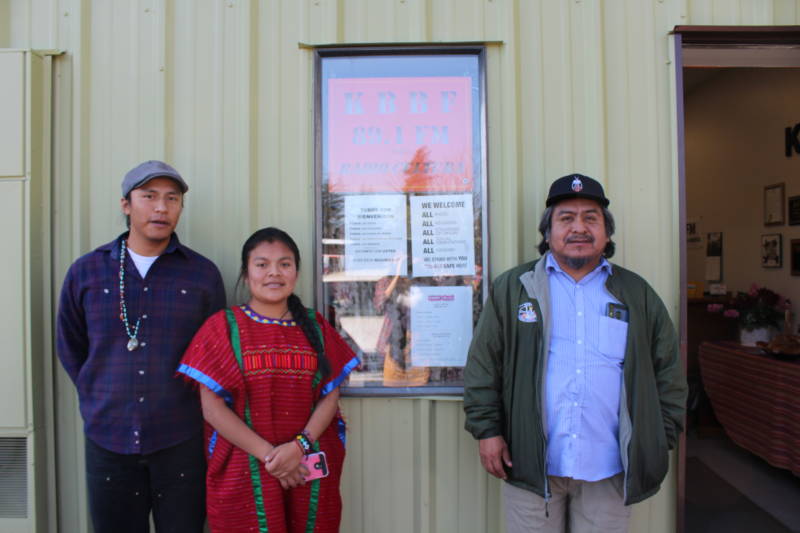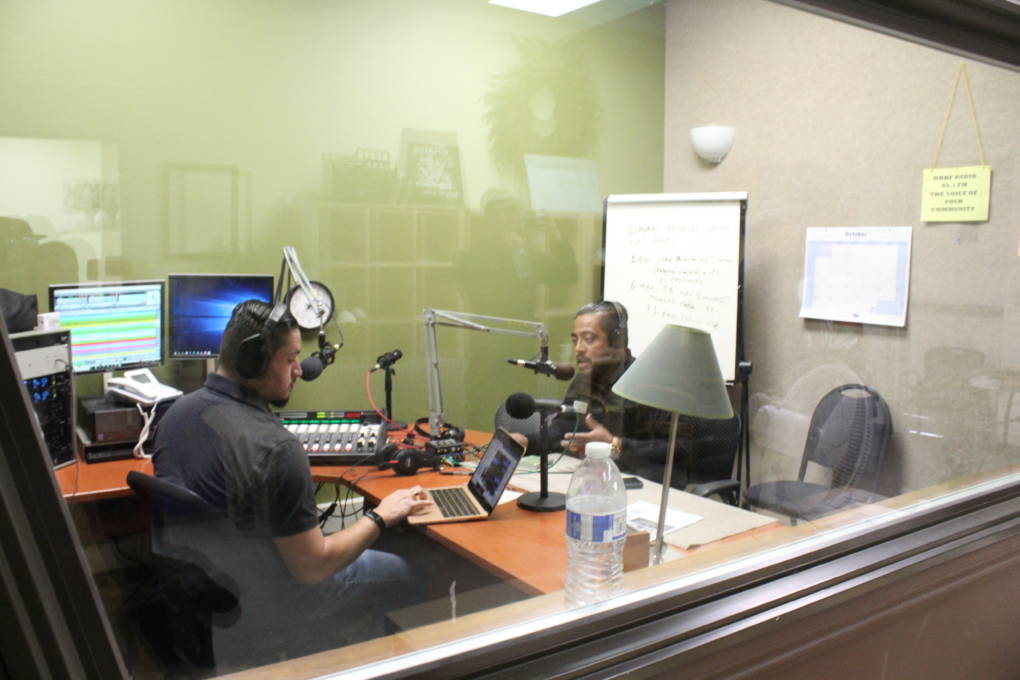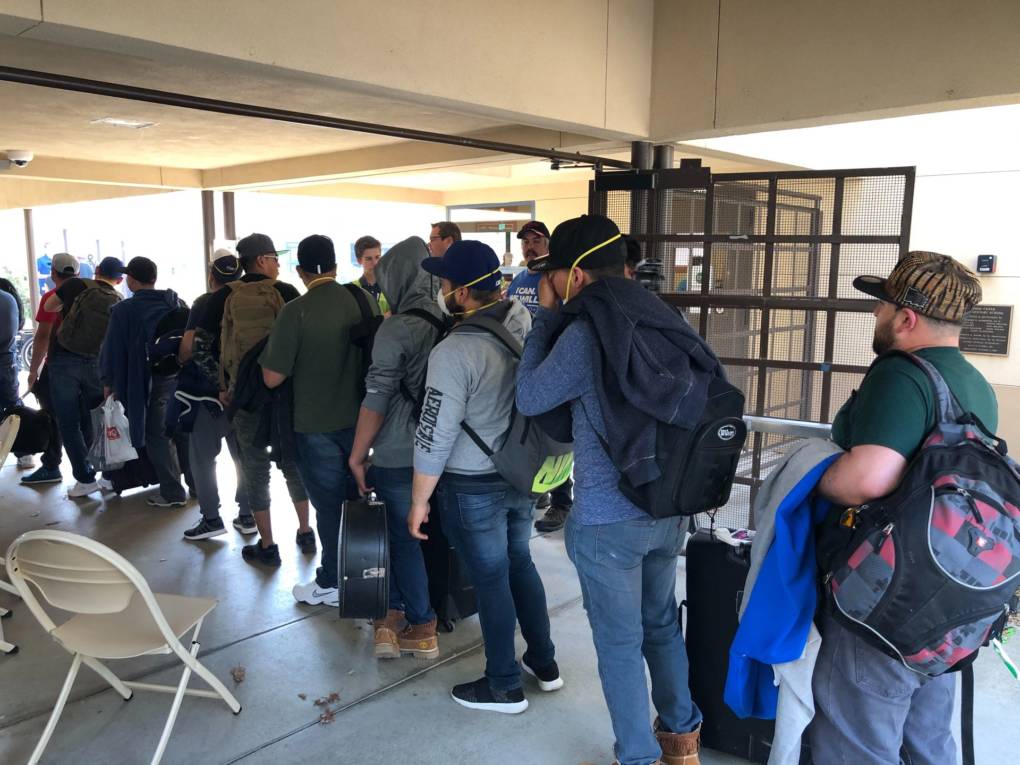In 2017, the world around Xulio Soriano’s family was burning. His mother, who has high blood pressure and diabetes, couldn’t get critical information about the fires burning in the North Bay, where she lived. It wasn’t because information wasn’t being relayed — it just wasn’t relayed in a language she understood.
The Tiny Radio Station Relaying Critical Kincade Fire Information in Indigenous Languages

“I realized that not having the language that you need is basically a life or death situation,” Soriano said.
That year, a small community radio station tucked behind a residential street in Santa Rosa became the main source of fire information for Spanish-speaking residents of the North Bay. Farmworkers and immigrant families tuned into KBBF-FM for critical information about where the fire was and when to evacuate — information they weren’t getting elsewhere in their native languages.
Now, as the Kincade Fire burns through Sonoma County, KBBF-FM has expanded their role in the community even further. The station is now multilingual and has begun broadcasting in indigenous languages like Mixteco and Triqui.

“We saw this lack of resource in the last North Bay fire complex two years ago in a big way,” said Soriano, who volunteers at the station. “Most people were just trying to get Spanish information translated, which was an issue. Now we actually have some of the solutions to translate not everything, but as much as we can.“
KBBF-FM has been filling a large need in an area where agriculture draws in many migrants and farmers looking for work. A third of Sonoma County is Latino, and about a quarter of the population speaks a language other than English at home.
Yet during the 2017 North Bay Fires, emergency updates and alerts often came in English only. Agencies like the Red Cross, which organized the emergency response, didn’t have translators. That meant a significant segment of the population wasn’t getting critical information about the deadly fire, or access to resources to help with recovery.
Gervacio Peña Lopez, a Mixteco speaker who’s volunteered at the station for 17 years, found himself personally translating information to relatives working in the fields. He said that’s who KBBF’s audience is today: farmworkers and migrants, many of whom are hearing life-saving information in their native languages on the air for the first time.
Peña Lopez and other volunteers like Maribel Merino, who translates for the station in Triqui, are filling a gap in trust — and not just on air. Merino has visited evacuation centers in a traditional red hupil, identifying her as a native speaker. At the evacuation center, Merino answered people’s questions about the Undocufund, which gives aid for undocumented victims of fires.
“We are creating this out of love, solidarity, but also demanding it as a right,” Soriano said.
Subscribe to The Bay to hear more local Bay Area stories like this one. New episodes are released Monday, Wednesday and Friday at 3 a.m. Find The Bay on Apple Podcasts, Spotify, Stitcher, NPR One or via Alexa.

